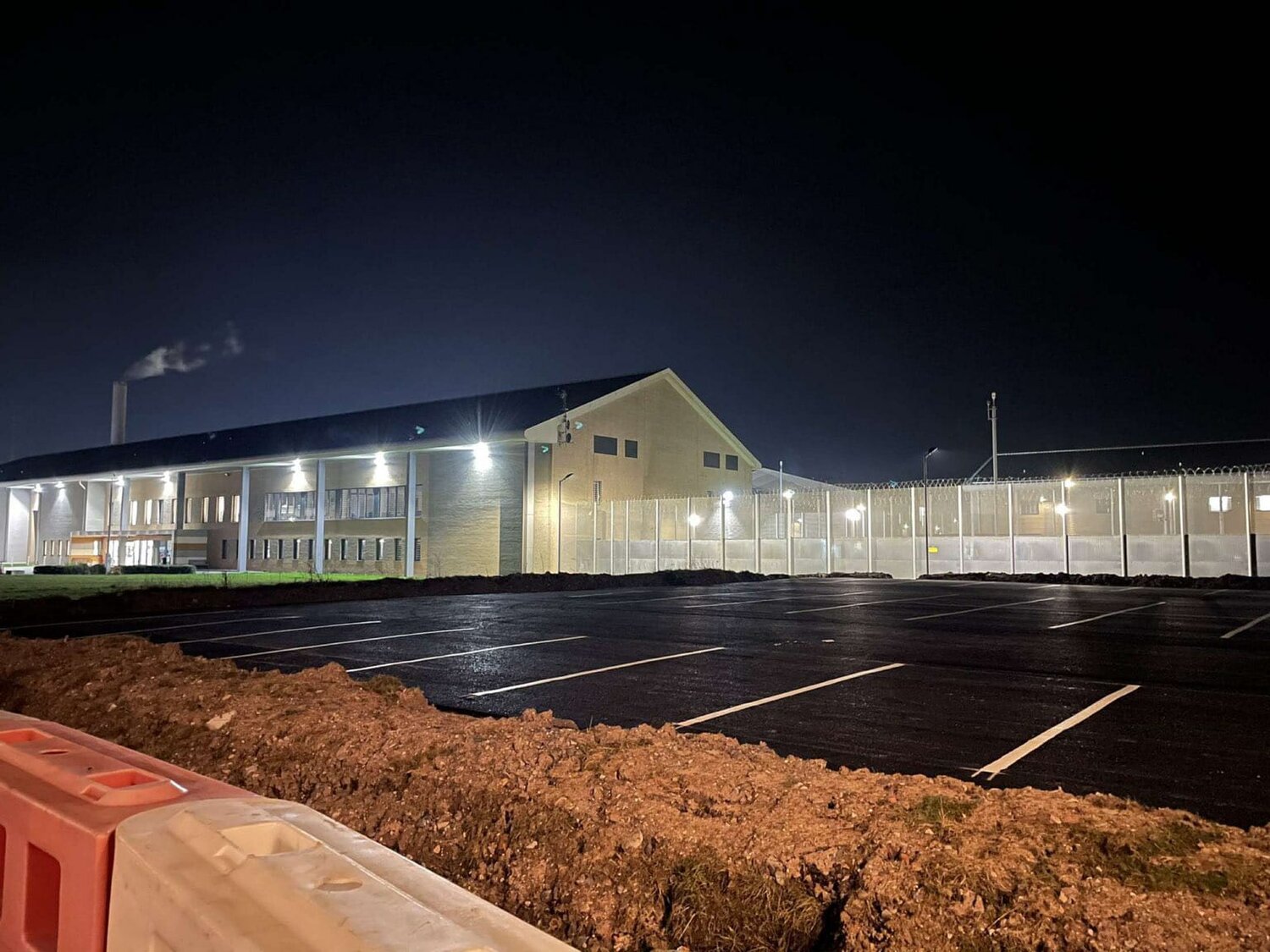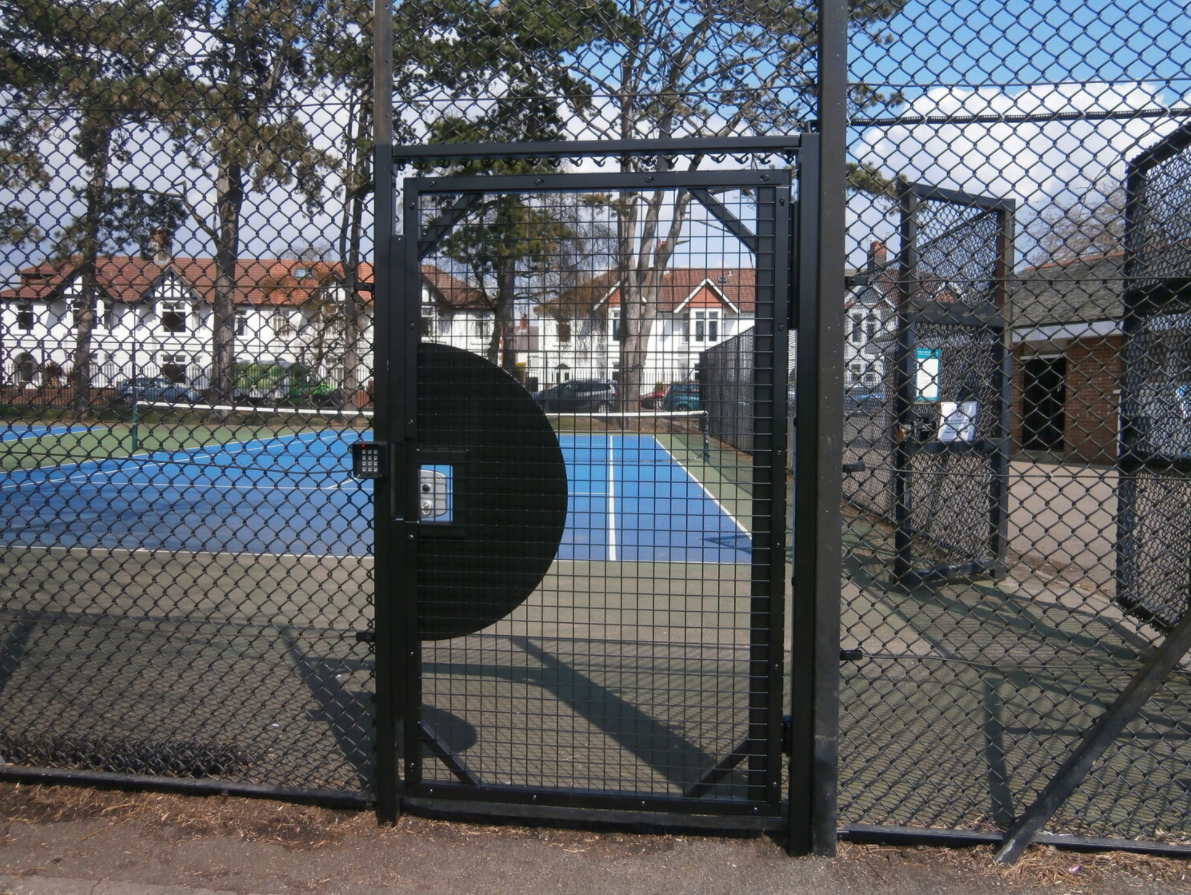
Northern Meadows: Four Women Hit With Injunction Speak Out Against ‘Scary’ Process
On January 21st 2022 Velindre University NHS Trust (VUNHST) published an interim injunction against four women, stating if they or ‘persons unnamed’ engage in direct action around the Cardiff Northern Meadows, that VUNHST says disrupts their activity, then they would be liable for “fines, imprisonment, or asset seizure.”
Cover image: The four women hit by the interim injunction, courtesy of the defendants
The interim injunction was triggered following protests against a new cancer centre being built on the Northern Meadows, a large area of wild habitat and mature woodland in Cardiff.
Whilst the injunctions have been served on four individuals, all of whom are women, the notices affect anyone, termed ‘persons unknown,’ taking part in what the Trust deems to be ‘direct action, in a specified area. The order is in place until at least the end of April, with a hearing set to determine if a full injunction will be imposed until 2025.
Among other things, the order forbids the defendants & the public to: enter the large area where work is being undertaken, to prevent or ‘slow down’ contractors doing work and to “encourage any other person to do any act prohibited” that falls under the injunction, including posting on social media.
Much of the land affected by the injunction was until the beginning of this year public space that could be easily accessed.
The interim order has gone unchallenged in court due to what the defendants have described as the high financial threshold for fighting the decision. Upon their request, voice.wales is not at this stage naming the defendants.
“I was priced out of justice,” one of the women defendants said. “I was so keen to contend this injunction but I knew I couldn’t once the solicitor told me the costs…”
“If I wasn’t priced out of justice, I would have highlighted that my actions were well within my rights to lawfully protest,” another of the women defendants has said.
The injunctions are a civil case, meaning a judge makes the decision on a balance of probabilities. “When you realise that things will be judged on the balance of probabilities [as opposed to being proved ‘beyond reasonable doubt’ in a criminal court], and when I’m up against people who have already spent £3million in legal costs for this project, I had to accept that I would not be able to defend myself,” one the women said.
All four injunctions relate to the period from October last year up until the beginning of January 2022, which saw the women join others in protest against the building of a new cancer centre on Cardiff’s Northern Meadows, a large area of green space containing mature trees, shrub land and natural habitat.
The development of the new centre has been marked with opposition from local residents and environmentalists since its inception, including from the naturalist Iolo Williams and activist Swampy.
Campaigners received a boost last year when 163 clinicians and cancer specialists wrote to Welsh Government stating that the new centre should be built at the University Hospital Wales site, not on the Meadows.
Their calls were ignored, however, and late last year work began on clearing the site, prompting protests from locals alarmed at the impact losing the meadows would have on flood prevention and the environment.
Veilndre says that building the new cancer centre next to the University Hospital Wales was considered by an independent think tank, but it would not be possible for a considerable amount of time.
One defendant says that she has been served a temporary injunction after questioning the safety of the site preparation works.
On the morning of Thursday 9th December 2021, the new Velindre Cancer Centre (nVCC) contractors had fenced off a Public Right of Way in order to transport a drilling rig for the works to begin.
In order to do this, they were required to create a new temporary public footpath, and ensure it was safe – something the council must assess. The woman described how she and another person challenged the nVCC project lead over the safety of the footpath.
After speaking to a councillor on the phone and being assured the footpath was safe, she says she left the area.
“For a single 20 minute episode of ensuring that nVCC project was complying with keeping the public safe, Velindre served me with this interim injunction.”
The women say they have not directly been served the injunction, only via social media, via Velindre’s own platforms, and by having the injunctions, and their full names, posted around the entrances to the Northern Meadows. Two of the women say they had to pay a large sum of money to eventually get their names removed.
The Save the Northern Meadows Campaign, which has been organising opposition to the development of the new centre, have condemned the injunctions as a method of intimidation aimed at protesters and highlighted the fact that all those served the notices are women.
“Although multiple men were named in the evidence, those served were all women, a clear attempt to target and intimidate the incredible women who have worked hard on the campaign,” the campaign said.
One of the women describes having lived in the area for 25 years and that she joined the campaign “because I wanted to protect this magical wild space that has provided so much joy in my life.”
“Why have those 4 women been singled out? One is a retired GP, 2 are mums, and me – 2 days before the injunction was served, I was diagnosed with Multiple Sclerosis, an incurable degenerative disease.”
Velindre did not respond directly to the questions of why four women were named in the injunction, as it was a live legal case, but a spokesperson said they “absolutely respect everyone’s right to peaceful protest, and this injunction process does not impact this at all.”
One of the women defendants says that she had already taken the decision to step back from the campaign following the diagnosis. “To discover I had been named on an injunction was very scary, as I didn’t fully understand what it meant, and I just didn’t have the brain space to deal with it, on top of coming to terms with my life alternating diagnosis.”
The woman goes on to say that her mother survived cancer twice “all thanks to Velindre,” but that by refusing to build the new centre next to the University Hospital Wales, the centre is not putting patient safety first.
“The fear of sub-standard cancer care and ecocide has led me to peacefully protest with my community,” she said.
One area covered by the injunction is around the act of encouraging “any act prohibited” by the order, which are listed in the document and mainly focus around entering the “safety zone” (“demarcated as an area from which members of the public are excluded”).
In the court documents, published in full on the Velindre website, under a section detailing ‘Direct Action,’ the case for an injunction is supported by saying that “[social media] posts were made on the Save the Northern Meadows’ Facebook page encouraging individuals to carry out Direct Action and to avoid being identified when doing so.”
It then lists a number of examples, including this from one of the defendants on 3rd December. “Velindre Cancer Centre are coming back on Monday 6th Dec, to do more enabling works on the Meadows and in Forest Farm Nature Reserve. The community will fight this until the bitter end to ensure we get the right clinical, financial and environmental outcome”
voice.wales asked Velindre if they see this post as a call to the kind of direct action now prohibited by the order, and if such a post was made today, would they see it as a breach of the injunction. Velindre did not respond to this specific point.
In another development, one woman was served an injunction despite not being named as a defendant, as she is an admin of the Save the Northern Meadows Facebook Page
One of the defendants commented:
“Their injunction even impedes on our freedom of speech by saying we can’t say certain things on social media. For me, this has close parallel with the PCSC [Police, Crime, Sentencing and Court] Bill which sought to make noisy protests illegal…”
voice.wales approached Velindre for a response on a number of points, including whether women had been unfairly targeted with the injunction, why the cancer centre was being built as a stand-alone facility on the Meadows and why had the women not been contacted directly.
In response to the defendants raising the fact that they are all women, a Velindre spokesperson said they “remain committed to delivering excellent non-surgical tertiary cancer services for the population of south-east Wales.” And that they “absolutely respect everyone’s right to peaceful protest, and this injunction process does not impact this at all.” They said it would be “inappropriate for us to comment further on what is a live legal case.”
In response to why they are building a stand-alone cancer centre, a Velindre said that the independent health think tank the Nuffield Trust had considered the question and spoken to clinicians about collocating the new cancer centre on the site of a general hospital, but their report concluded: “We explored the potential for creating VCC at University Hospital Wales (UHW) but we have concluded that full co-location will not be an option for some considerable time.”
When asked about why the defendants had not been contacted directly, Velindre said that The Trust “have to publicise the relevant legal documents in order to bring them to the attention of those who engaged in direct action.”
“A high court hearing approved the alternative methods for serving the injunction, which is often the case in these processes when full details of individuals are unknown. All individuals named were given a clear explanation of the implications of their actions which was evidenced. They were also given an opportunity to sign an undertaking effectively agreeing not to take further direct action which would mean exclusion from the injunction.


